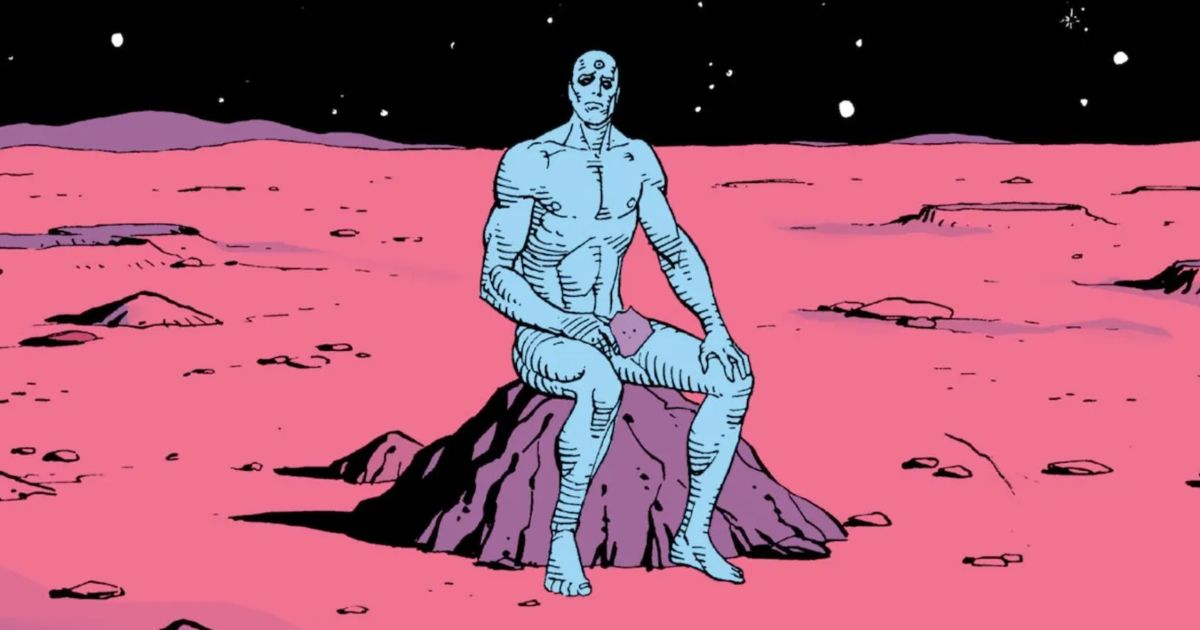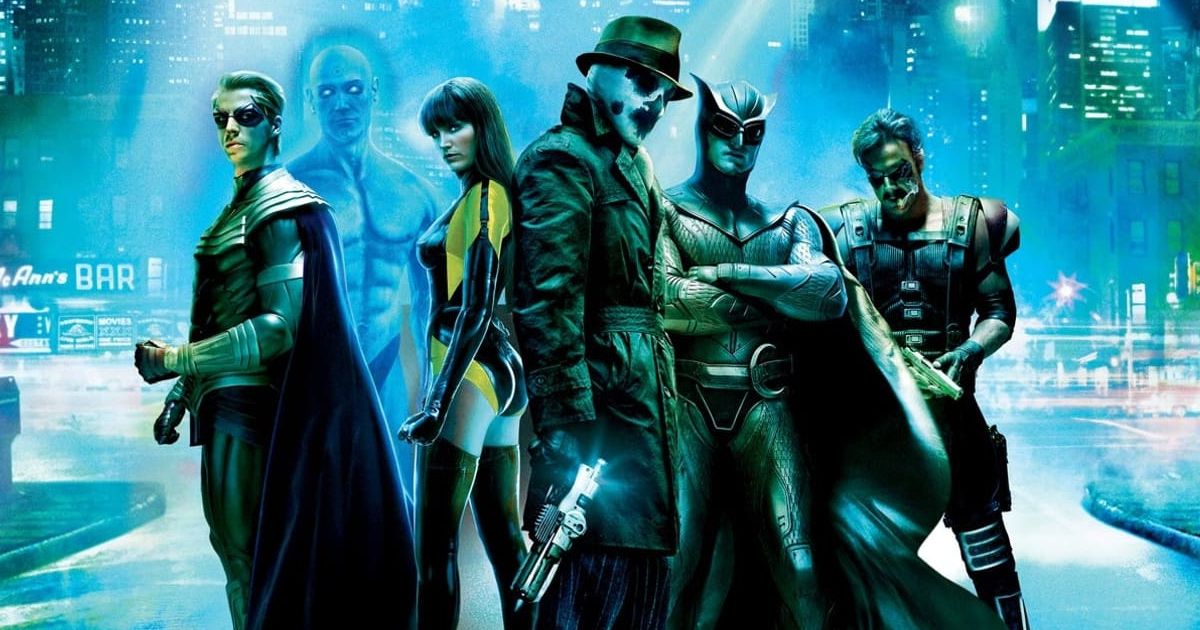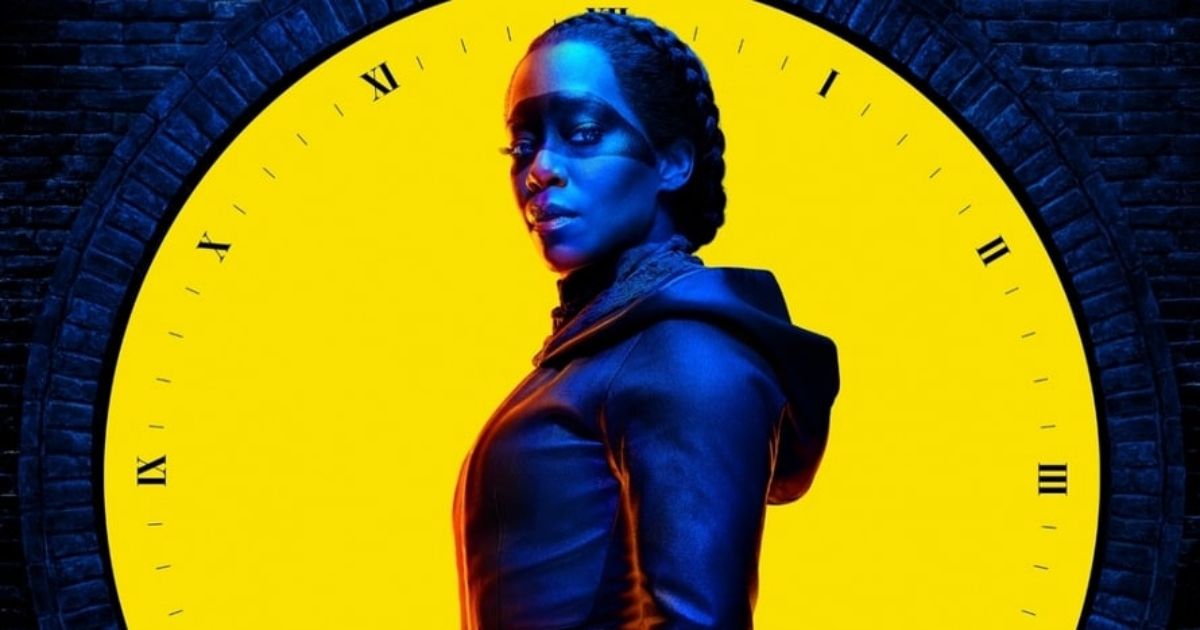The history of DC's Watchmen is as interesting as the comic itself. Originally created by Alan Moore, Dave Gibbons, and John Higgins, the original comic series ran from 1986 to 1987 and was meant to serve as a one-off deconstruction of the superhero genre. Set in an alternate history that saw superheroes win the Vietnam War for the US, the world finds itself on the brink of another cataclysmic war. But during the middle of all this, a superhero enlisted by the government is murdered, prompting a group of vigilantes to don their masks once again to investigate, despite their practice being outlawed.
Watchmen is still frequently considered to be one of the greatest comics ever made, prompting DC to nullify its one-off status in favor of prequels, sequels, and adaptations. We won't argue the quality of each one of these, but let's just say that Moore has duly disowned practically everything that wasn't his direct creation. With the recent announcement of yet another adaptation of Watchmen, an animated one this time around, it may be better to just leave the Watchmen franchise alone.
Not "Getting" Watchmen
Watchmen holds a somewhat controversial reputation with its multiple adaptations, starting with the 2009 film directed by Zack Snyder. Yes, before the "Snyder Cut," before Batman v. Superman, even before Man of Steel, Snyder's first superhero film was an attempt to bring the Watchmen to the big screen. While it certainly captures the visual style of the original medium Watchmen was printed on, the film itself was highly criticized for not featuring what made Watchmen so compelling, to begin with.
Watchmen is nuanced. It's not an action-packed series, nor is it something that lends itself well to the genre. It was a series that, according to Moore, worked best in its original format. In some ways, Moore was right. A movie about superpowerless people donning masks featured choreography on par with your typical Hollywood superhero film.
Multiple moments wherein the juxtaposition of the comic's visuals and overlaid text simply couldn't be translated to the screen. You could even argue that the film's deliberate choice to stick with the comic's original setting decades later undermines some of its original meaning. Combine that with a lengthy bout of development Hell prior to Snyder's involvement, and you have a film that attempts to cram in twelve dense issues of a comic into only two and a half hours – or three and a half hours, if you opt for the director's cut.
It's not that Watchmen is a terrible movie, mind you. It has certainly grown a divided, if not reputable, cult following, especially now that superhero films are an annual staple. It's just that, in converting the literal events of the comic to another medium, the effectiveness of what it had to say about comics and the superhero genre as a whole is lost in translation. Conversely, the 2019 HBO series is more positively appraised across the board, but it's more of a sequel that works off of ideas and concepts originally introduced in the comic than a straightforward adaptation.
What Can Be Done With Watchmen?
Let's ignore all the stuff surrounding Watchmen for a second: how Rorschach is beloved instead of reviled, how the HBO miniseries seemingly got everything right, how Alan Moore disowned just about everything related to Watchmen, all of it. Let's just focus on the animated Watchmen film coming in 2024. All we can think of when we see the announcement is a single question: why?
Watchmen was, for all intents and purposes, a one-off series. It was wholly separate from the DCU before being shoehorned into it via a sequel series more than thirty years later. Even an entire comic sequel dedicated to Rorschach would be released shortly after the conclusion of the HBO series, ultimately diluting the impact of the original character by turning him into yet another franchise. Instead of making a statement about the state of comics, its overall effectiveness feels muddled underneath the baggage.
What benefit is there to adapting Watchmen into an animated film? Was a motion comic, multiple comic continuations, a live-action movie, a game, and an HBO miniseries not enough? What is being accomplished by just retelling Watchmen again? It's not as if there's a dearth of other material to pull adaptations from; DC is even adapting the Crisis on Infinite Earths storyline as well in 2024.
Sometimes, it's better to ask ourselves if something really "needs" an adaptation. Watchmen is a comic inspired by comics, is about comics, and predominantly features a character reading a pirate-themed comic – Tales of the Black Freighter – as a concurrent analogy to the story's events.
Even if you animate the panels and keep the striking color palette provided by John Higgins, the animation that DC's animated films utilize wouldn't compare to how the comic panels melded together in our imagination. When you look at this, and you look at all the other current DC projects going on, it just feels a little strange to see the same well returned to yet again.



